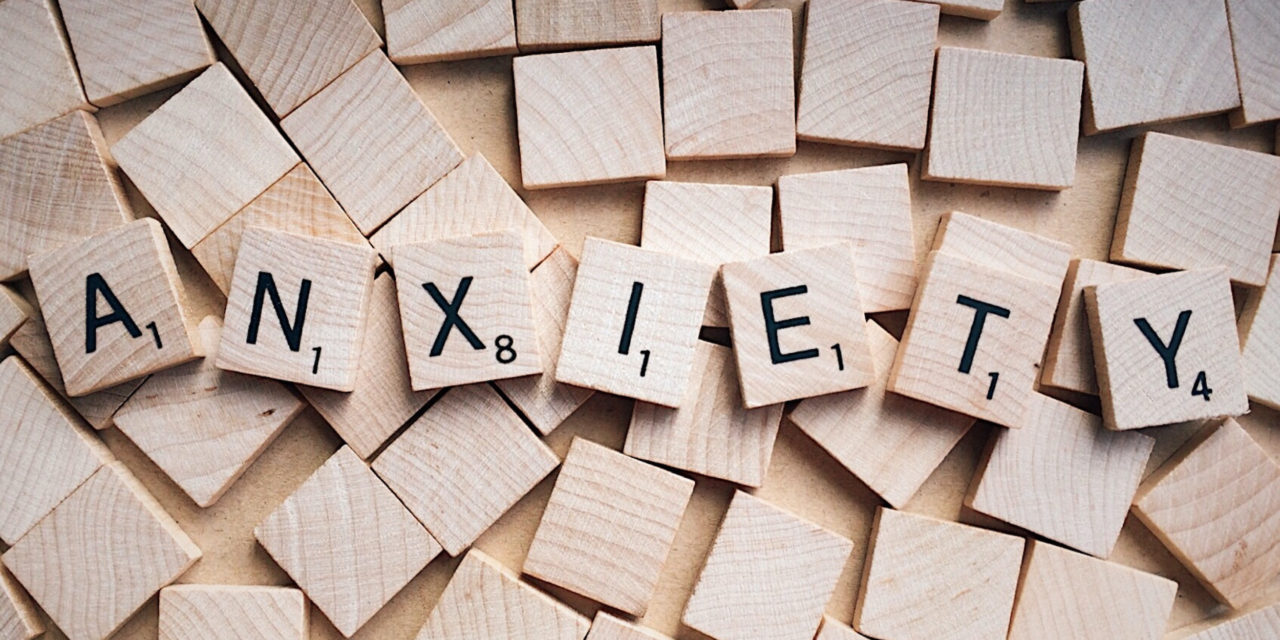The coronavirus pandemic represents a double whammy for us senior adults. We’re most vulnerable to dying from the virus and the highly volatile stock market is undermining our retirement savings.
The world has changed in dramatic ways just in the past few weeks. The World Health Organization declared the COVID-19 virus the first pandemic in more than a decade. The U.S. and Europe are now the epicenter for the outbreak, not Asia. The U.S. stock markets had their worst week since 1987 and officially entered bear market territory. Schools and universities are closed. There are no Broadway plays. Even most churches have closed their doors and moved to online worship services. Perhaps most troubling, the NCAA canceled March Madness (LOL).
In this story, let’s look at some practical ways for retirees and other senior adults to cope during this pandemic. And yes, we mean beyond rushing out to buy more toilet paper.
By the way, we always welcome comments from readers, but in this case, that’s doubly so. Please share your best ideas for coping during this pandemic at the end of this story. Let’s learn from one another.
For more stories about the coronavirus crisis on This Retirement Life, also see these stories:
“5 Tasks Seniors Can Tackle During the Coronavirus Crisis“
“How Seniors Are Using Their COVID-19 Downtime Productively“
“How to Stay Healthy, Engaged During the Coronavirus Pandemic.“
Healthcare considerations
Large-scale testing for COVID-19 will begin soon in the U.S., with quick-testing stations set up at Walmart, Target, Walgreens, CVS and similar locations. By all means, if you have flu-like symptoms or suspect you may have coronavirus, get tested. As widespread national testing begins, keep in mind that the numbers of those who test positive for the virus will inevitably spike. That’s because right now we don’t really know how many Americans have the virus, since testing is not yet widely available. Don’t let the headlines alarm you when the numbers rise; that is bound to happen when millions get tested.
While the public rushes to stock up on TP and sanitizer, a more important consideration for us senior adults is our prescriptions. This would be a good time to check your supplies. If you were quarantined for two weeks, do you have adequate supplies of medications? Now may be a good time to refill, if possible. Don’t forget important over-the-counter drugs too, such as Advil, Tylenol, and whatever you need to cope with a bad cough.
If you can avoid it, a hospital is the last place you want to be right now. Hospitals are under extraordinary stress, trying to prepare for what could lie ahead. Besides, hospitals are notorious germ factories. You don’t want to be there if you can avoid it. Of course if you’re experiencing life-threatening emergencies like a possible heart attack, are in great pain, or are being treated for cancer, then by all means, go to the hospital. But what about elective surgery? It’s probably best to postpone elective surgery scheduled for the next 30 days or so. You will be doing yourself and the hospital a favor.
The same goes for emergency rooms and urgent care centers. If current predictions hold true, they are going to have their hands full in the weeks ahead. Your odds of contracting COVID-19 or the seasonal flu (it’s still out there too) are probably higher in those locations than nearly anywhere else. If you really need them, then by all means go, but otherwise try to find other alternatives for healthcare.
The stock market and your retirement savings
The net worth of many of us senior adults dropped significantly in the past week, thanks to a highly volatile stock market that officially became the first bear market since 2009. We’re with you; our retirement accounts are down too. For some background, a bear market occurs when stocks drop at least 20 percent from their peak. A correction is when prices drop at least 10 percent. Stocks were just as volatile in Europe and Asia too, so there was nowhere to hide.
Here are a few key points to keep in mind regarding your retirement savings:
– Only those who panic and sell out during market declines truly lose money. Selling your stocks right now is probably the worst thing you can do. Those who hang tight and stick to their longer-term investment strategy will benefit when the markets turn up again. Yes, I know. There’s no guarantee that stocks will ever rise again. That’s always the fear when we’re in the midst of a bear market. What I can tell you, however, is that in the U.S. we’ve experienced 13 bear markets since World War II, and the markets have risen again after each and every one of them, sometimes in a matter of months and sometimes in a few years. If you held onto your stock portfolio through the 1987, 2000-2002, and 2007-2009 bear markets (the three most recent ones prior to the current one), then you’ve fared very well.
For a more in-depth look at this topic, please read these past articles from This Retirement Life about how to cope during bear markets (see https://thisretirementlife.com/2019/08/29/how-to-get-ready-for-the-next-bear-market/ and https://thisretirementlife.com/2018/12/27/6-reasons-retirees-need-not-fear-bear-markets/).
– Stocks are still paying their dividends. If you rely on income from dividend-producing stocks, as many retirees do, then the good news is that companies are still paying their dividends. This could change if the economic slump worsens or is prolonged, but odds are if you have a broadly diversified portfolio of high-quality, dividend-generating stocks, your income will not suffer, or at least not significantly. For many of us, the income we receive is more important than the day-to-day value of the principal, which we will likely never spend and which will probably go to our kids or charity after we’re gone.
– You may want to pull retirement income from other sources temporarily. On the other hand, if you are withdrawing more retirement income from your portfolio than the stocks are paying in dividends, or perhaps you are of the age (72 and over) where you are required to withdraw a certain amount each year from retirement accounts, then you may need to temporarily change your strategy. Withdraw income from the cash and bond portions of your portfolio to avoid selling shares of stock at low prices. Do not take more income from the stock portion than the dividends while the market is down. Consider taking income from other non-retirement-fund sources until the bear market ends, if you have that flexibility. If necessary, find ways to trim expenses, especially discretionary ones like travel and home improvements, to avoid selling stocks from your retirement accounts.
– Consider delaying your pending retirement date. Planning to retire this year? Consider working at least one more year. In this way, you won’t have to start drawing money so soon from your retirement savings. Studies show that if you retire during a bear market and immediately begin pulling income from your stock-based savings, you will be at greater risk of running out of money later in life.
– Stocks are on sale. If you are not yet retired and are still paying into a retirement account, then the bear market is good news for you. It means stocks are on sale. You have a chance to pick up some bargains. Don’t let fear and anxiety keep you from doing what in principle everyone knows is the way to make money in stocks — buy low and sell high. Few people actually do that because they let fear paralyze them during bear markets.
Other money matters
Interest rates have slipped to extraordinarily low levels. At one point in the past week, the yield on the 10-year U.S. Treasury bond fell below 1 percent for the first time in history. The Federal Reserve Board recently cut the federal funds rate by 0.50 percent to an average of 1.0 to 1.25 percent, and later hinted there may be more cuts to come to help boost the economy.
This is important to retirees for at least two reasons. First, if you were planning to follow traditional logic and shift your retirement portfolio from stocks to bonds, you might want to think twice. Bonds are paying record-low interest rates, and when rates reverse and start back up, the principal value of the bonds will drop. Even if you are invested in bond mutual funds or ETFs, there’s a strong probability that the income they have been paying you is going to get reduced in the months and years ahead as higher-yielding older bonds mature and newer, lower-interest bonds are added to the portfolio.
Second, lower interest rates make this a great time to refinance a home mortgage or other debt. Problem is, everyone is doing it, so expect long lines and delays when going through the mortgage refinance process. Unfortunately, the rush to refinance is keeping rates slightly higher than they would normally be, but if you have had your mortgage a few years and plan to remain in your home, refinancing still may make sense.
Looking out for one another
Times of crisis bring out the best or the worst in us. Let’s make it the best. This pandemic and the resulting economic chaos around it presents an opportunity for us to show our children and grandchildren how to cope during hard times and what really matters in life. It’s a time for us to turn to faith and prayer, not fear and anxiety. It’s a time for us to be calm and reassuring with family and friends, especially the younger ones who have less experience coping with difficult times.
Perhaps most importantly, we need to watch out for one another. Do you have an elderly neighbor or church member, perhaps a widow or widower living alone? Make it a point to check on them often. What groceries and other supplies do they need? Do they need prescription refills? Remember, it’s better for them to stay home and minimize contact with the public during the pandemic, so you can help by running errands for them and showing you care.
This situation is going to quickly become a financial crisis for some workers and their families, especially low-wage employees living paycheck-to-paycheck and lacking strong benefits packages. Many of them are going to be temporarily out of work, and if the economy worsens, they may lose their jobs. Some of them may be our children or grandchildren, or people we know in our neighborhoods and places of worship. If able to do so, please be generous and supportive of those who may be suffering financially in the weeks ahead. Consider increasing your donations to food banks, soup kitchens, and similar programs. Show generosity and a willingness to share.
Finally, let’s keep healthcare workers and first responders in our thoughts and prayers. They are risking their health to protect the rest of us and will be under a lot of additional stress. If you are a healthcare patient, offer a smile and be extra kind to nurses and staff during these trying times. Be understanding when wait times are longer and processes don’t go as smoothly as usual. Thank them for their service.
Pandemics don’t last forever
Truth is, no one knows how long this virus will last or how bad it will get in North America and Europe. The experience in Asia, where the virus originated, is encouraging. It suggests that the coronavirus may run its course relatively quickly. Life is gradually returning to normal in China. If we’re fortunate and our measures to contain the virus are successful, it is possible we will be over the worst of the virus by late spring or early summer. What happens next fall and winter is a concern for a later time.
What’s less clear is how deep and how long the economic damage will be. Will economic activity bounce back quickly? Will all of the laid off employees get called back to work? Will some companies be permanently weakened or not surive? Time will tell.
Regardless, this isn’t the end. Most of us will not get coronavirus, and of those who do, the vast majority will show no symptoms or recover.
Let’s stick together and keep our wits. Let’s show solidarity as a nation and demonstrate the true values that make America great. Let’s join in prayer for our nation and world, for government and healthcare officials, for victims of the COVID-19 virus, for employees and families who will suffer from the economic slowdown, and for the brave doctors, nurses and other healthcare workers who are on the frontlines in this battle.
We senior adults are a resilient group. We’ve seen a lot in our lifetimes. We will make it through this latest challenge too.
Got comments? We love to hear from our readers! Please scroll down and add your comments in the section below. Just remember to keep it clean; this is a “PG” rated blog. We also do not approve of comments that are selling a brand, product or service.
Like this story? Subscribe via email for free to receive all future stories from This Retirement Life. Our blog explores topics of interest to retirees and those planning for retirement. Please see subscription information to the right of this story or below, and sign up today.










Some excellent and very good advice. Thank you for sharing.
Thanks, Cindi. Stay safe and healthy!
I enjoyed reading this post. I read your articles really often and you always find a way to entertain! Shares this
to my Facebook and my fans loved it! Keep up the good work :).|
This is a great post, I read your blog regularly and have to say, you have some great
content, keep it up!.|
Amazing article! Very impressed with the quality of this, gotta share this to my social
medias now! :D.|
Thank you very much. We’re glad you are enjoying the blog.